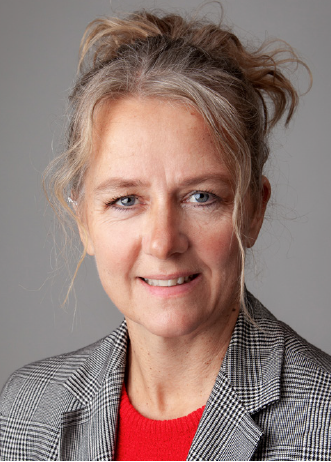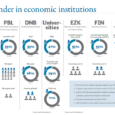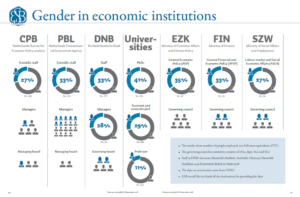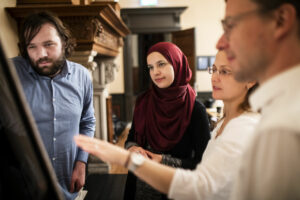Women in economics
Why is this article in English?
This article is part of our English publication ‘Women in Economics’. This dossier is in English because English is the main language of the economics and business faculties in the Netherlands, so an ESB dossier about the people who work there should be in English.
When I was a professor at the University of Notre Dame in the United States, we would spend hours organizing a gender-neutral departmental gathering. A barbecue was ruled out, for then the men would take charge of the cooking. Sports activities were out of the question, because then the women would feel overpowered. A reception at the home of the male chair was impossible, because then his wife might feel compelled to take care of the catering. The result of these annual deliberations was always the same: a catered reception in a restaurant’s boring private room.

When I became a professor at the Radboud University in the Netherlands, I discovered that my colleagues never gave the gender-neutrality of our departmental gatherings any thought. The result was that we held barbecues, did sports, and held receptions at the home of the male chair with his wife taking care of the catering. Worse, I learned that there was an invite-only, all-male walking group of professors networking every weekend. And over lunch jokes were exchanged about ‘maths for girls’.
Now, the political correctness in the United States may be overdone, but the situation in the Netherlands is underwhelming. The result is that women make up around 33 percent of professors in the United States, and roughly 20 percent in the Netherlands. The figures for economics are even worse, with 10 percent female professors.
The situation in the Netherlands is a pitifully missed opportunity. Why is this so? One does not have to be a feminist to favour more women in academic positions. After all, diversity is a proven success factor. In general, economic experiments show that mixed teams of men and women perform best. In other words, we are talking about hard economics and not about soft women’s lib.
If diversity really is a proven success factor, why would universities themselves not hire more women? The reasons are to be found in the deeply ingrained prejudices about women. For instance, a woman is valued less when there is only one female candidate, while a job itself is valued less when there are three or more female candidates. Recommendation letters for women are also phrased differently. Indeed, the idea that women are not leaders is a deeply ingrained prejudice.
As a result of these deeply ingrained prejudices and as long as academia is dominated by a male culture, universities will find it hard to get a suitable female candidate for a high-ranking position. Women who adjust, are regarded as competent but unkind. Women who do not adjust, are regarded as incompetent but nice.
And when women are able to break through the glass ceiling and reach the top, they are threatened by a glass cliff. This is caused by the fact that women, more so than men, hold risky management positions in which the chances of succeeding are slim.
Just as Loesje (a famous Dutch opinionater) wisely wrote: “Children are the future, if their mothers also get one.” Diversity is a proven success factor, and so the lack of women in academia in general and economics in particular is a pitifully missed opportunity. And that is how I became a feminist.
Auteur
Categorieën









